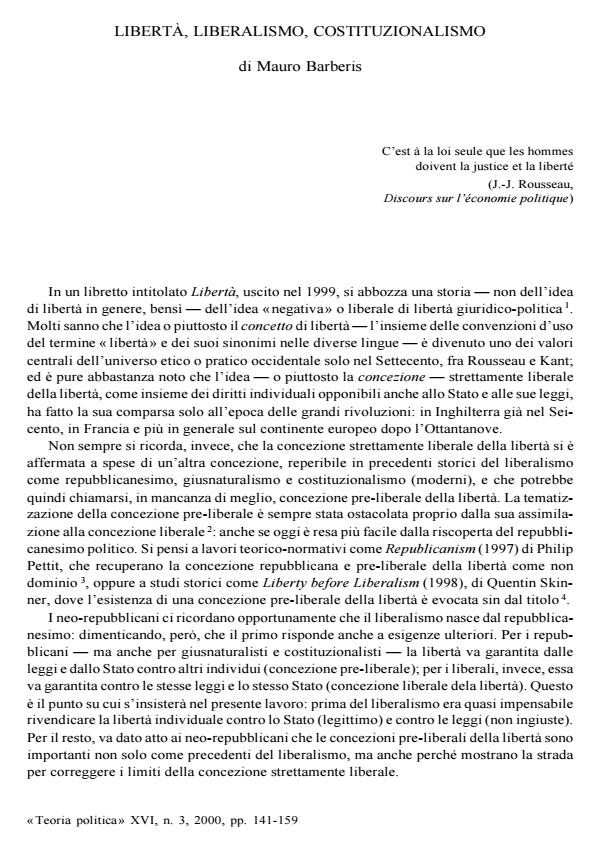Libertà, liberalismo, costituzionalismo
Journal title TEORIA POLITICA
Author/s Mauro Barberis
Publishing Year 1 Issue 2000/3
Language Italian Pages 19 P. File size 62 KB
DOI
DOI is like a bar code for intellectual property: to have more infomation
click here
Below, you can see the article first page
If you want to buy this article in PDF format, you can do it, following the instructions to buy download credits

FrancoAngeli is member of Publishers International Linking Association, Inc (PILA), a not-for-profit association which run the CrossRef service enabling links to and from online scholarly content.
Taking up some conclusions reached in M. Barberis, "Libertà", il Mulino, Bologna 1999, the author distinguishes between two ideas of freedom often confused: the stricly liberal one, by which the individual is free to do what he wants and he can oppose his freedom even to the state and its laws, and the pre-liberal one, typical of the doctrine of natural law and the republican and constitutional strands of thought, by which the individual is free to do only what he ought to, and he can oppose his freedom only to other individuals, not to the state or its laws. In the first part of this article, two historical examples of these conceptions are offered, represented respectively by Benjamin Constant and Montesquieu. In the second part the partition between liberal and pre-liberal conceptions is used to redefine the very concept of liberalism; while in the third part preliberal and liberal forms of constitutionalism are shown, suggesting that the last one requires the moral neutralization of law typical of present (methodological) positivism of law.
Mauro Barberis, Libertà, liberalismo, costituzionalismo in "TEORIA POLITICA" 3/2000, pp , DOI: